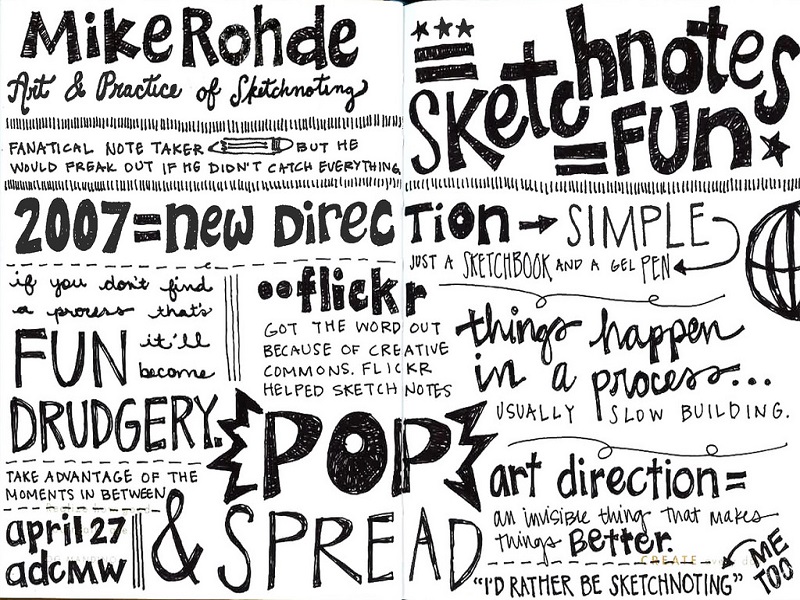via SMASHING: Have you ever seen someone make creative notes at a conference and wished that your own notebook was more presentable? It’s much easier to do than you think. You don’t have to be an aspiring lettering artist, and you don’t need to develop top-notch drawing skills. Making your notes more interesting doesn’t have to be a huge undertaking. It’s not like learning to play the piano or taking up diving. If you think sketchnoting looks fun, I have some tips to get you started.
Have you ever seen someone make creative notes at a conference and wished that your own notebook was more presentable? It’s probably much easier to do than you think. You don’t have to be an aspiring lettering artist, and you don’t need to develop top-notch drawing skills.
Making your notes more interesting doesn’t have to be a huge undertaking. It’s not like learning to play the piano or taking up diving. If you think sketchnoting looks fun, I have some tips to get you started.
Creative Note-Taking For Anyone
People make all sorts of visual notes. An army of sketchnoters is out there, and everyone has their own style. Some do amazing sketches and lavish letters. Some translate complicated concepts into easy-to-grasp diagrams. But for the sake of this article, let’s keep it simple.
It doesn’t matter whether you call it sketchnoting or doodling or scribbling or simply “adding some joy” to your notes. Just aim for something visual that takes your notes to the next level. Combine this with an effort to slow down when forming letters, and I’ll bet you will surprise yourself at the difference it makes. The goal is to create something that you would want to take out again and look at — and, hey, perhaps even show others.
You Are Your Own Target Audience
Sketchnotes done live over 45 minutes can’t capture everything. They won’t be a perfect structured summary. My notes are not intended to stand on their own feet. They have value for me and perhaps other attendees at the conference.
Make the notes for yourself first. Share them if you want — other attendees will probably love to take a look. Sketchnotes can spread the word to the outside world about an interesting talk or about the conference itself. But people who have not heard the talk can’t expect the sketchnotes to carry much meaning on their own. I mention this because people sometimes misunderstand their purpose.
Keeping this in mind will help you get started on your own sketchnotes. You don’t have to try to “instantly” explain everything or worry that you’ll miss one of the speaker’s key points. It’s OK — they’re just your personal notes.







